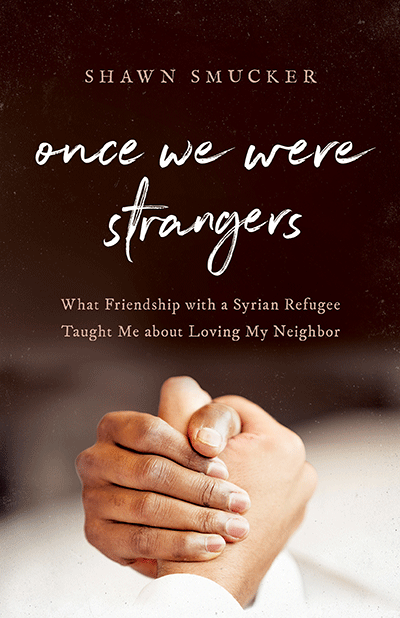
Mohammad, Moradi and their four children, aged 10 to two, left their home in the middle of the night with what they could carry on their backs, probably never to return, writes Amy Boucher Pye.
The hollowed out wall in their dining room where the bomb had landed reminded them daily that in Syria they were under attack. They knew that as parents they couldn’t provide a safe place for their boys to grow up, so they chose to leave the home they’d always known and their wider family, including Mohammad’s parents, who couldn’t travel with them. After four years in Jordan, including time in a soul-destroying refugee camp, Mohammad received a phone call saying they were moving to the United States.
And that’s where Shawn Smucker met Mohammad and his family, for Shawn had set out to help some Syrian refugees, perhaps documenting through a book what he thought would be the dangerous account of how they left their country and then the heart-warming story of how they settled into life in the States. But what Shawn wrote was so different from that, for he was changed through knowing Mohammad. This man – a Muslim refugee from a country so different from his own – taught Shawn what it means to be a friend.
Shawn reflected about the state of friendship in developed countries where individualism reigns. He observed, “I realise that in most of my friendships, so little is required of either party. …We’ve valued independence for so long that we haven’t recognised the gradual slipping into loneliness. Now we fend for ourselves, depending on no-one, asking nothing, and, because of that, receiving so little.”
Mohammad, in contrast, wanted to spend time with Shawn, drinking the strong coffee that would keep Shawn up into the night, with no agenda other than being together. For Shawn, a friendship with Mohammad meant learning to “let time pass without feeling an urgency to fill it with noise”.
Shawn also had his preconceptions about Muslims shattered. He saw how Mohammad and Moradi had the same concerns about their children that he and his wife held. He said, “My deep-seated, hidden concern that every Muslim person might be inherently violent or dedicated to the destruction of the West was exposed and found to be false.”
I found Once We Were Strangers a gentle look at what it means to be a true neighbour and friend in our complex world of politics, isolation, fear and distrust. And how when we give, we end up receiving so very much more.
A good book to read with an open heart, asking God how we can find someone unlike us with whom we can be a neighbour and friend.






























